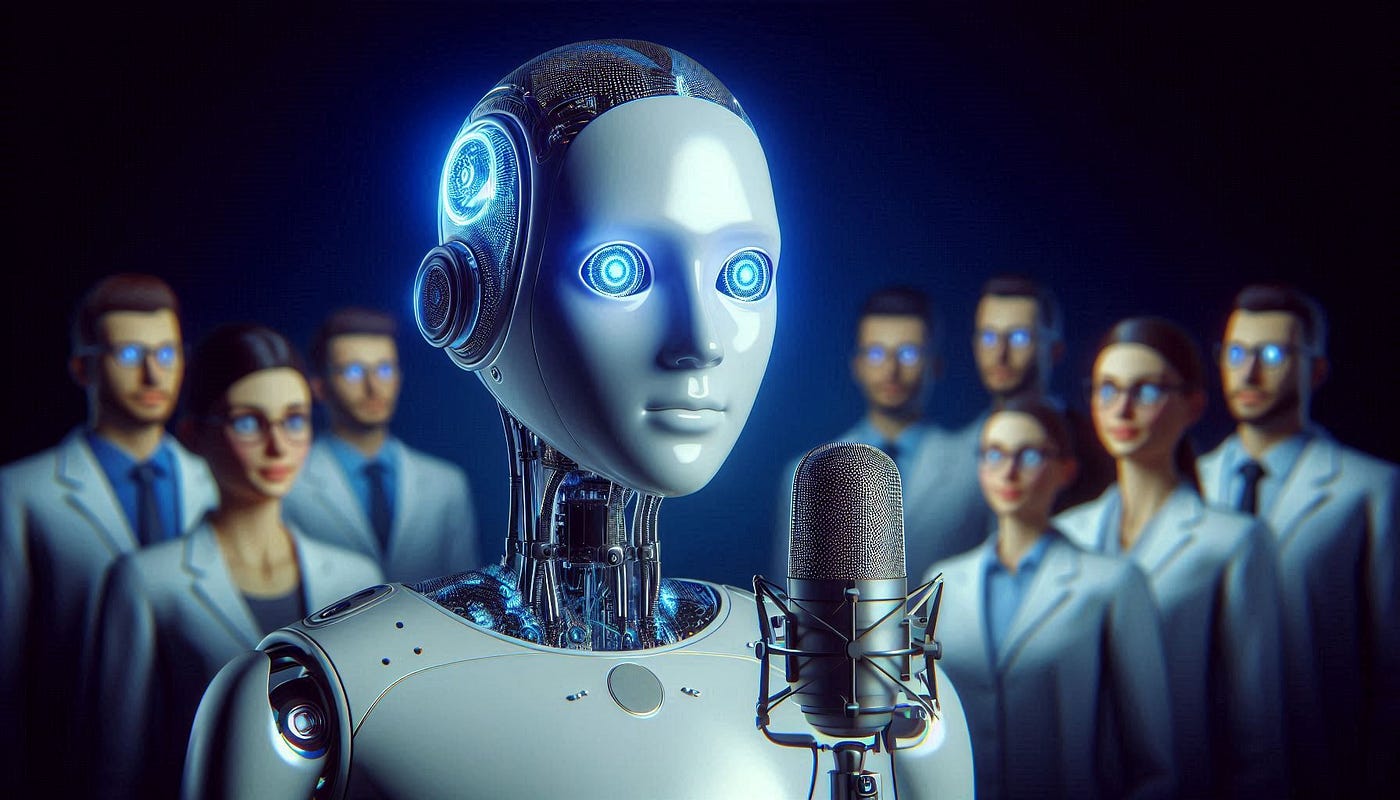
Introduction
In today’s digital era, voice technology has evolved dramatically. One of the most fascinating advancements is the ability to convert normal human voices into AI-generated voices. This technology, known as normal voice to AI voice conversion, leverages artificial intelligence (AI) and deep learning to replicate human speech patterns with remarkable accuracy.
From content creators and filmmakers to customer service bots and virtual assistants, AI voice conversion is transforming industries. This article explores how AI voice converters work, their applications, benefits, ethical concerns, and future trends.
How Does a Normal Voice to AI Voice Converter Work?
AI voice conversion relies on speech synthesis and machine learning models to analyze and reproduce human speech. Here’s a breakdown of the process:
1. Voice Data Collection
- The AI system requires a sample of the speaker’s voice (recordings ranging from a few minutes to several hours).
- High-quality audio ensures better accuracy in mimicking tone, pitch, and emotion.
2. Feature Extraction
- The AI analyzes speech characteristics such as:
- Pitch (frequency of the voice)
- Timbre (voice texture)
- Cadence (speaking rhythm)
- Emotional tone (happy, sad, angry, etc.)
3. Training the AI Model
- Deep learning models like WaveNet (Google), Tacotron, or OpenAI’s Whisper process the voice data.
- Neural networks learn to predict and generate speech patterns.
4. Voice Cloning & Synthesis
- Once trained, the AI can generate new speech in the cloned voice.
- Users input text, and the AI converts it into spoken words using the cloned voice.
5. Post-Processing
- Fine-tuning ensures natural-sounding speech with correct intonation and pauses.
Applications of AI Voice Conversion
AI voice converters are being used across multiple industries:
1. Content Creation & Entertainment
- YouTube & Podcasts: Creators use AI voices for narration without hiring voice actors.
- Dubbing & Localization: Movies and shows can be dubbed in different languages using AI voices.
- Video Games: AI-generated voices allow dynamic character dialogues.
2. Virtual Assistants & Chatbots
- Companies like Amazon (Alexa), Apple (Siri), and Google Assistant use AI voices for more natural interactions.
- Custom AI voices can represent brands uniquely.
3. Audiobooks & E-Learning
- AI voices make audiobook production faster and cheaper.
- E-learning platforms use AI narrators for courses in multiple languages.
4. Customer Service & IVR Systems
- AI voices power Interactive Voice Response (IVR) systems for businesses.
- Reduces costs compared to human operators.
5. Accessibility Tools
- Text-to-Speech (TTS) for visually impaired users.
- AI voices help people with speech disabilities communicate.
6. Marketing & Advertising
- Brands create personalized voice ads using AI-generated voices.
- Enables multilingual ad campaigns without re-recording.
Benefits of AI Voice Conversion
1. Cost-Effective
- Eliminates the need for hiring professional voice actors.
2. Time-Saving
- Generates speech instantly compared to manual recording.
3. Multilingual Support
- AI can convert voices into multiple languages seamlessly.
4. Personalization
- Users can create custom voices for unique applications.
5. Scalability
- Businesses can deploy AI voices across global platforms effortlessly.
Ethical Concerns & Challenges
Despite its advantages, AI voice conversion raises ethical and security concerns:
1. Deepfake Misuse
- AI voices can be used for fraudulent calls, fake news, or impersonation scams.
2. Privacy Issues
- Unauthorized voice cloning violates personal privacy.
3. Job Displacement
- Voice actors and narrators may face reduced opportunities.
4. Lack of Emotional Depth
- AI voices may lack the emotional nuances of real human speech.
5. Legal & Copyright Challenges
- Who owns the rights to an AI-generated voice? Laws are still evolving.
Future of AI Voice Conversion
The technology is rapidly advancing, with exciting developments on the horizon:
1. Emotionally Intelligent AI Voices
- Future AI will detect and replicate emotions more accurately.
2. Real-Time Voice Conversion
- Live voice changing (e.g., during calls or streaming) will become seamless.
3. Improved Multilingual & Accented Speech
- AI will better handle regional accents and dialects.
4. Integration with Augmented Reality (AR) & Virtual Reality (VR)
- AI voices will enhance immersive experiences in VR gaming and meetings.
5. Stricter Regulations & Authentication
- Governments may enforce laws to prevent AI voice misuse.
Conclusion
The normal voice to AI voice converter is revolutionizing how we interact with technology. From entertainment to customer service, its applications are vast and growing. However, ethical concerns must be addressed to prevent misuse.
As AI voice technology continues to evolve, we can expect even more lifelike and versatile speech synthesis, shaping the future of communication. Whether for business, creativity, or accessibility, AI voice conversion is here to stay—ushering in a new era of digital voices.
Would you use an AI voice converter? The possibilities are endless!
Word Count: ~2000
This article provides a comprehensive overview of AI voice conversion, covering its mechanisms, uses, benefits, and ethical considerations. Let me know if you’d like any modifications or additional details!


Leave a Reply